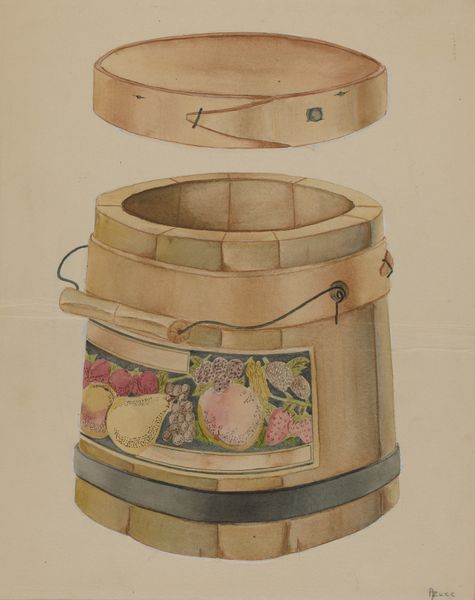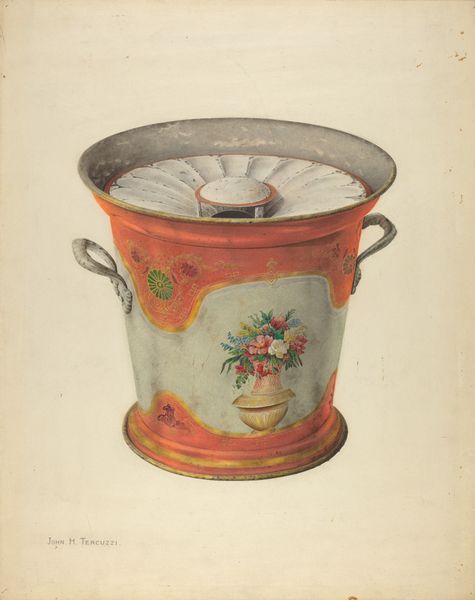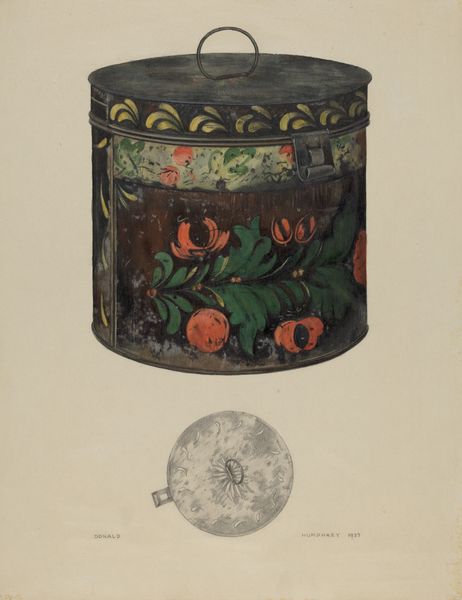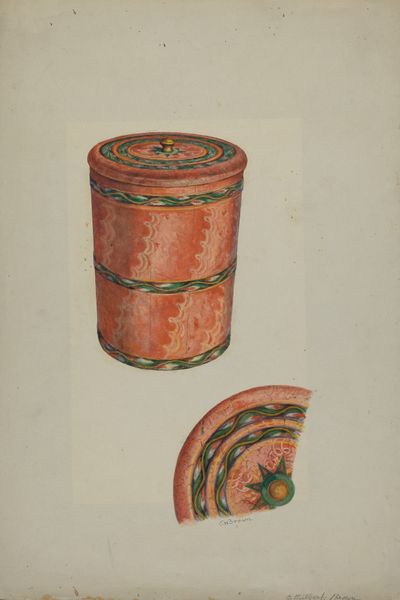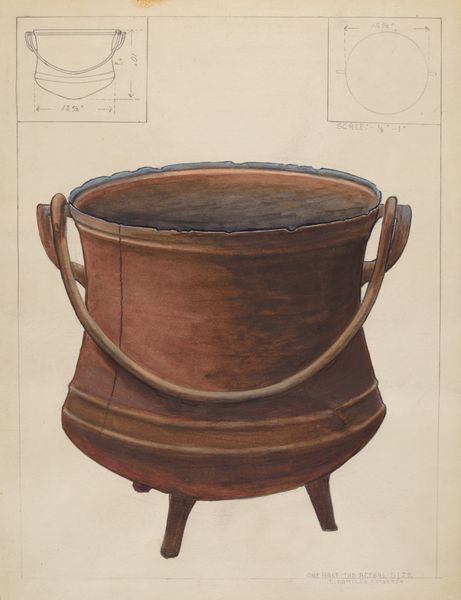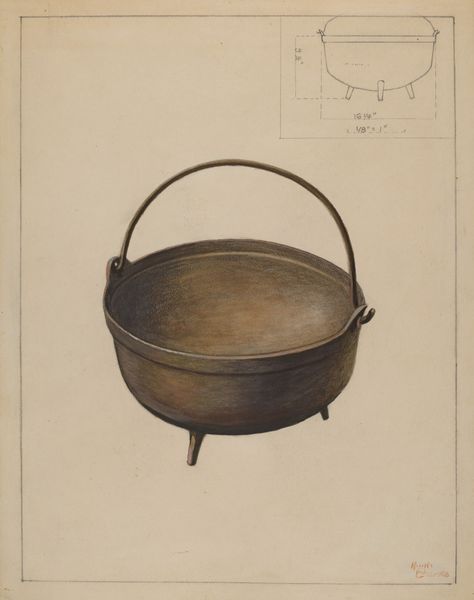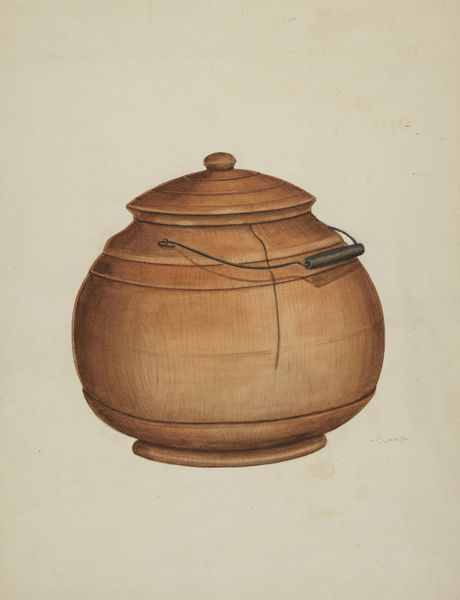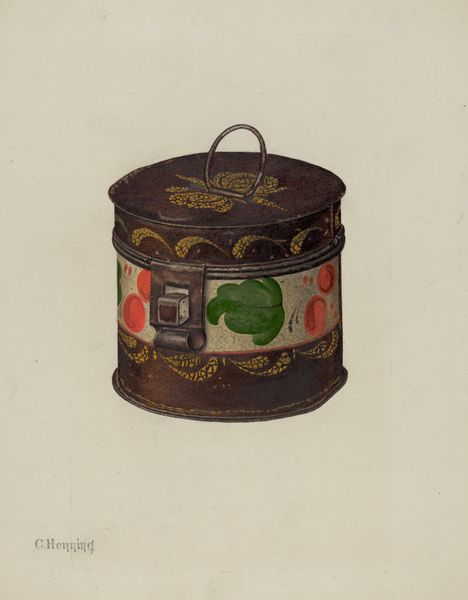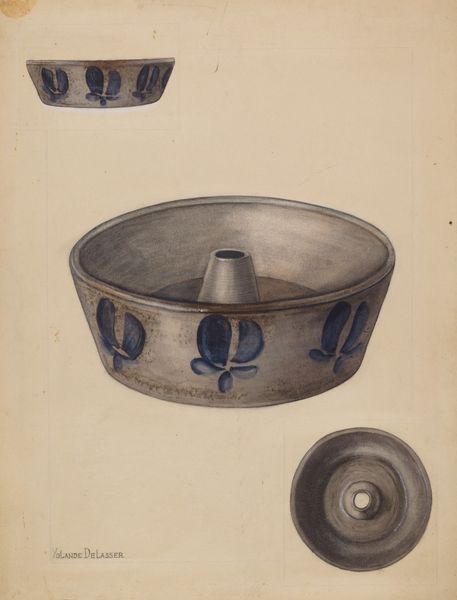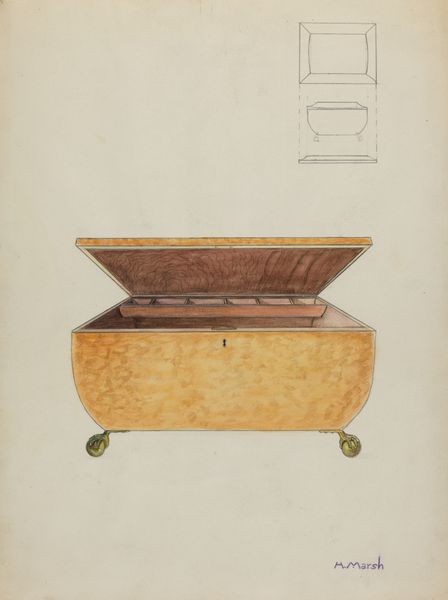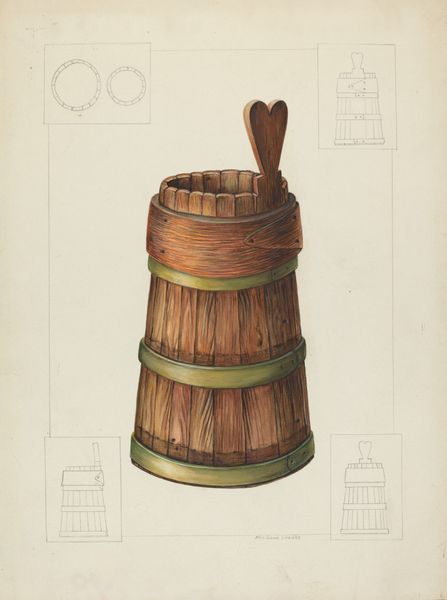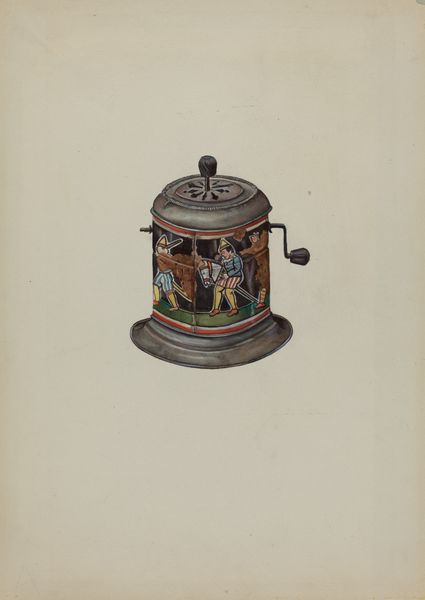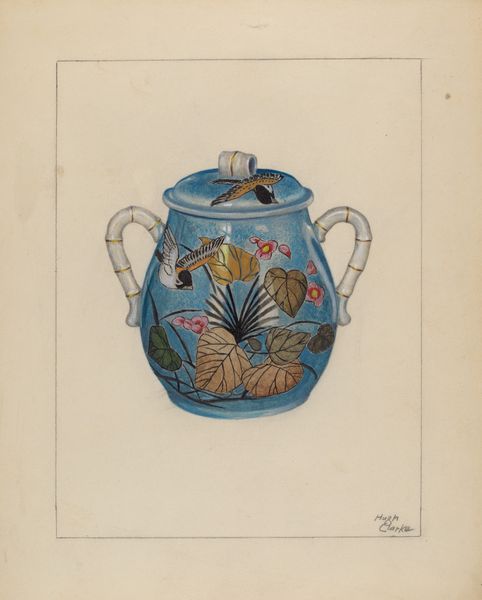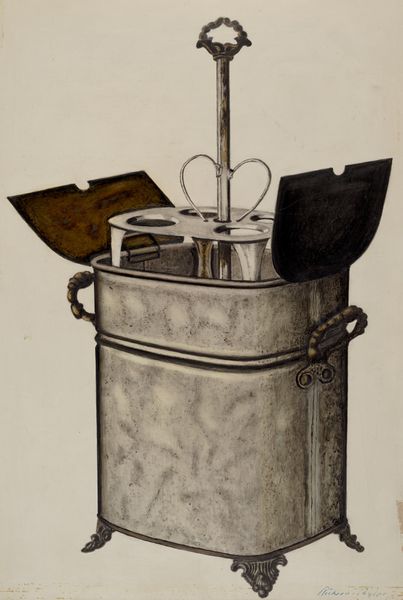
drawing
#
drawing
#
aged paper
#
toned paper
#
water colours
#
antique
#
coloured pencil
#
coffee painting
#
underpainting
#
watercolour bleed
#
watercolour illustration
#
watercolor
Dimensions: overall: 35.5 x 28 cm (14 x 11 in.) Original IAD Object: 6 3/4" high; 6 3/4" wide
Copyright: National Gallery of Art: CC0 1.0
Editor: This is a watercolor drawing called "Wooden Pail," created around 1936. It depicts a simple wooden pail with its lid slightly ajar, there is a ring of fruit depicted around the body. It feels very nostalgic and humble. What do you see in this piece? Curator: I see a fascinating glimpse into the art of the everyday. In the context of the 1930s, during the Depression era, the humble wooden pail becomes a symbol, wouldn’t you say? An emphasis on what is essential, on craft, and a rejection of excess? Editor: That's a great point. The pail’s simplicity contrasts sharply with the artistic styles from the previous decade, like Art Deco, right? The fruit almost appears like an advert of something attainable despite circumstances... Curator: Exactly! And it's rendered with a muted palette, further underscoring its quiet dignity. Does the "aged paper" effect influence your view, and how might our understanding change if this object was rendered digitally, pristine and flawless? Editor: That’s interesting, I feel the aged paper adds to the idea of nostalgia. Seeing it pristine might feel overly sanitized, losing some of the original context. I had not thought of it that way. Curator: The choices surrounding display are inherently political. We could explore how the framing of mundane objects impacts notions of value and societal priorities. How do we elevate what we deem worthy of remembrance, or discard what no longer suits us? Editor: So, the drawing prompts consideration about what society values and preserves. Curator: Precisely. It's about asking critical questions concerning how representation reflects power structures. Editor: I'll definitely look at still life with a fresh perspective from now on!
Comments
No comments
Be the first to comment and join the conversation on the ultimate creative platform.
